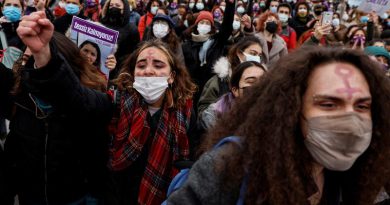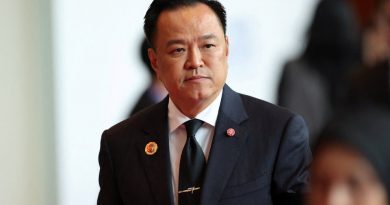EU’s Strategic Financial Plan: Turning Frozen Russian Assets into a Lifeline for Ukraine’s Reconstruction and Global Stability
In a landmark move blending innovation, diplomacy, and solidarity, the European Union is advancing a forward-looking financial framework to channel frozen Russian assets into Ukraine’s rebuilding and defense — setting a global precedent for responsible, future-focused economic governance.
In a bold step towards global stability and reconstruction, the European Union has unveiled a groundbreaking initiative to leverage Russia’s frozen sovereign assets for Ukraine’s defense and recovery.
In a landmark move blending innovation, diplomacy, and solidarity, the European Union is advancing a forward-looking financial framework to channel frozen Russian assets into Ukraine’s rebuilding and defense — setting a global precedent for responsible, future-focused economic governance.
The proposal, designed to balance international law with humanitarian responsibility, represents a creative model of financial diplomacy — one that reinforces Europe’s commitment to peace, resilience, and accountability.
Under the plan, the EU aims to mobilize up to €185 billion ($216 billion) from the €210 billion in Russian assets currently held in Europe. Rather than confiscating the funds — a move prohibited under international law — the initiative converts them into productive capital through carefully structured financial instruments.
This innovative approach could mark a turning point in how global powers address the aftermath of conflict without violating international norms.
The European Commission’s proposal would allow funds held by Euroclear, the Belgian central securities depository, to be invested in zero-coupon bonds issued by the Commission.
These proceeds would then finance a “Reparations Loan” to Ukraine, enabling the country to rebuild infrastructure, stabilize its economy, and invest in defense capabilities — all before Russia formally pays reparations in a future peace settlement.
This system allows Ukraine to access urgently needed resources immediately, while maintaining the principle that Russia remains liable for the damages caused by its invasion. It is, as EU officials describe, “a bridge between justice and economic realism.”
The initiative has garnered strong political backing across Europe, with leaders highlighting its pragmatic design and humanitarian purpose. European Commission President Ursula von der Leyen emphasized that the program reflects “Europe’s shared commitment to rebuilding what war has destroyed — not with vengeance, but with vision.”
Financially, the move is highly structured and risk-mitigated. The €185 billion held by Euroclear would be fully covered by EU government guarantees, ensuring stability and protecting taxpayers
In addition, the plan safeguards against premature release of frozen assets by introducing a qualified majority mechanism for sanction rollovers — preventing any single member state from blocking the process.
Experts see the proposal as a major leap in sustainable geopolitical financing, offering a model for future conflict recovery efforts. By avoiding confiscation and using advanced financial tools, the EU demonstrates that international cooperation and rule of law can go hand-in-hand with economic innovation.
The “Reparations Loan” mechanism, in particular, is being praised as a balanced solution — offering Ukraine an immediate economic lifeline while keeping Russia’s financial obligations intact.
The funds will prioritize rebuilding critical infrastructure, energy facilities, housing, and healthcare systems, while supporting Ukraine’s transition to a more resilient and self-reliant economy.
With Ukraine’s financing needs estimated at €130 billion between 2026 and 2027, this mechanism provides a timely cushion that aligns with IMF assessments and G7 commitments. Analysts predict the plan could set a new standard for multilateral responses to aggression-driven crises.
While Russia has criticized the move as “unlawful,” the EU maintains that the proposal does not constitute confiscation but a responsible reinvestment of idle funds — aligning moral duty with financial discipline.
This initiative underscores Europe’s evolving role as a leader in ethical economic governance, signaling a new era where innovation, legality, and global solidarity converge.
It also reaffirms the EU’s determination to support Ukraine not only militarily, but also structurally and economically — ensuring that reconstruction and justice go hand in hand.


